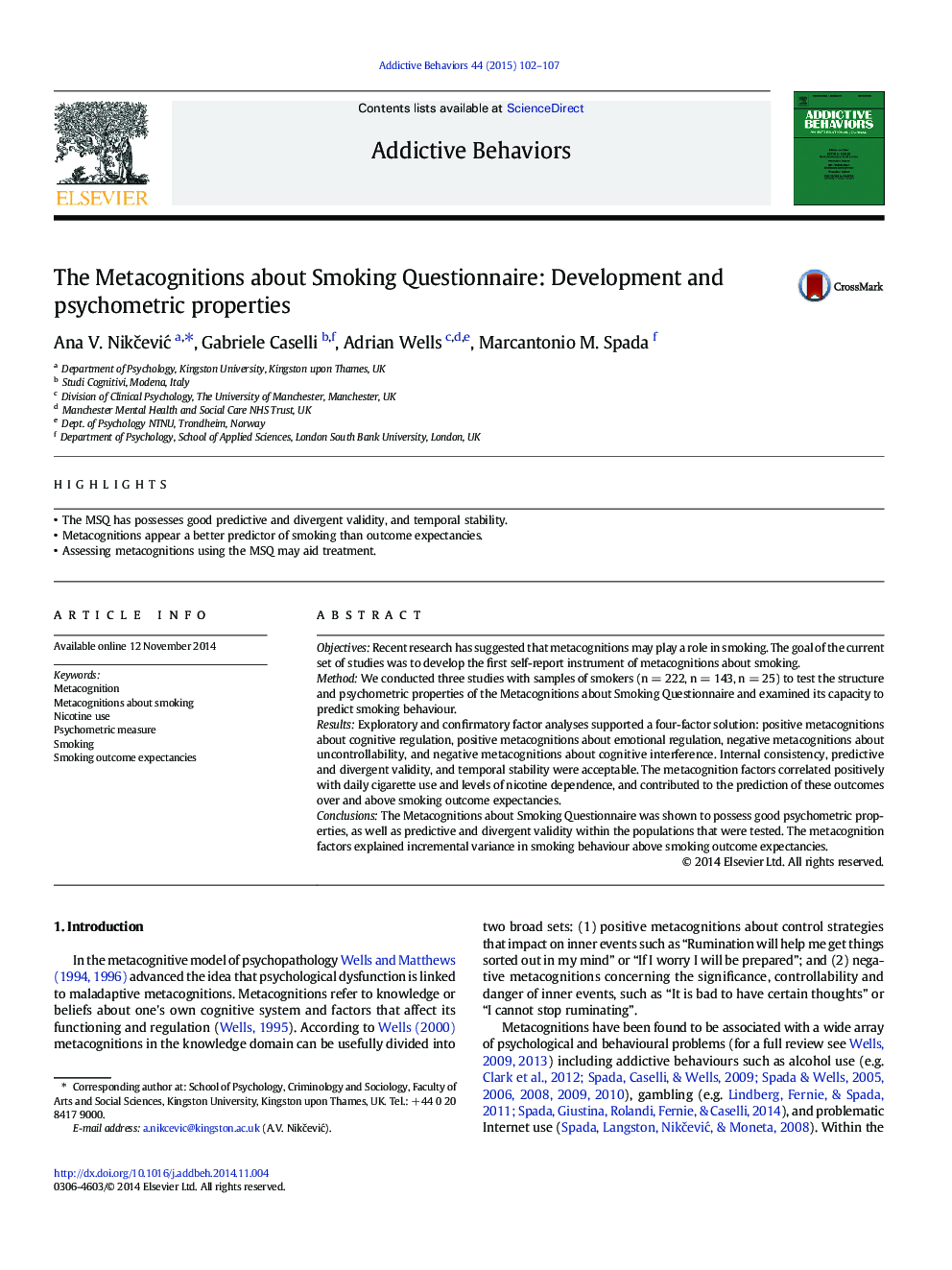| Article ID | Journal | Published Year | Pages | File Type |
|---|---|---|---|---|
| 898711 | Addictive Behaviors | 2015 | 6 Pages |
•The MSQ has possesses good predictive and divergent validity, and temporal stability.•Metacognitions appear a better predictor of smoking than outcome expectancies.•Assessing metacognitions using the MSQ may aid treatment.
ObjectivesRecent research has suggested that metacognitions may play a role in smoking. The goal of the current set of studies was to develop the first self-report instrument of metacognitions about smoking.MethodWe conducted three studies with samples of smokers (n = 222, n = 143, n = 25) to test the structure and psychometric properties of the Metacognitions about Smoking Questionnaire and examined its capacity to predict smoking behaviour.ResultsExploratory and confirmatory factor analyses supported a four-factor solution: positive metacognitions about cognitive regulation, positive metacognitions about emotional regulation, negative metacognitions about uncontrollability, and negative metacognitions about cognitive interference. Internal consistency, predictive and divergent validity, and temporal stability were acceptable. The metacognition factors correlated positively with daily cigarette use and levels of nicotine dependence, and contributed to the prediction of these outcomes over and above smoking outcome expectancies.ConclusionsThe Metacognitions about Smoking Questionnaire was shown to possess good psychometric properties, as well as predictive and divergent validity within the populations that were tested. The metacognition factors explained incremental variance in smoking behaviour above smoking outcome expectancies.
